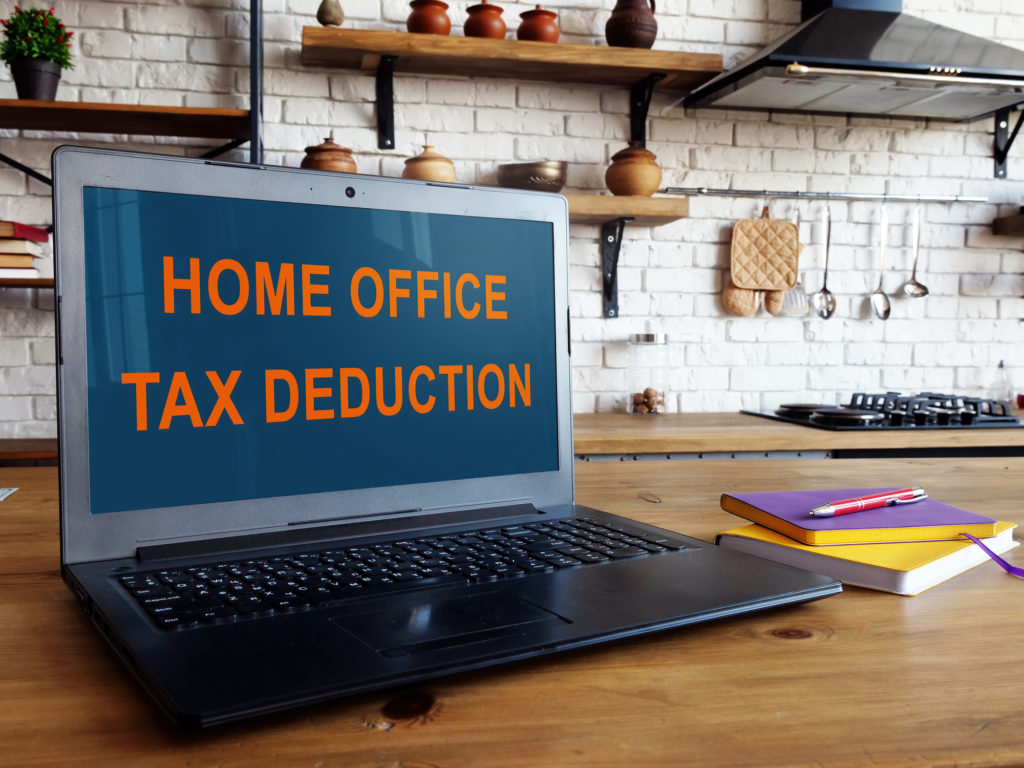 The pandemic caused many small business owners to abandon their offices—and the rent for them—in favor of working from home and allowing staff to do the same. If you operate your business from home, as do about half of all small businesses, you may be able to deduct some of the personal costs of your home as a business expense.
The pandemic caused many small business owners to abandon their offices—and the rent for them—in favor of working from home and allowing staff to do the same. If you operate your business from home, as do about half of all small businesses, you may be able to deduct some of the personal costs of your home as a business expense.
In the past, many believed that taking this deduction was an audit red flag, but due to the prevalence of businesses operating from owners’ homes, this is highly unlikely and should not prevent you from take the deduction if you’re eligible. Just follow the rules and you can save on your taxes. This topic has been covered by my blog before, but due to the continued prevalence of home-based businesses, it’s worth revisiting during tax time.
1. The home office must be your principal place of business or otherwise qualify
If you’re still maintaining a commercial office, your home office won’t qualify for any deduction; that’s not your principal place of business. But if you work primarily at customer locations, as long as you do “substantial administrative tasks” from home, such as keeping the books and scheduling appointments, your home office is viewed for tax purposes as your principal place of business.
You may also qualify for the home office deduction if the home office is:
- A place to physically meet or deal with patients, clients, or customers in your home in the normal course of your business, even though you also carry on business at another location
- A separate free-standing structure, such as a studio, workshop, garage, or barn
2. You must use the space regularly and exclusively for business
It doesn’t matter whether you own or rent your home, but the space used for business must be done regularly and exclusively. Your “office” may be a spare bedroom or simply space within a room. It doesn’t need a physical partition. It just can’t be space that’s also used for personal purposes, such as your kitchen table.
3. You may choose to use a “standard deduction” for the home office
You can deduct the actual costs of the area used as your home office. For example, if you use 10% of your home’s square footage as an office, then 10% of these costs go into your home office deduction. Costs includes rent if you are a tenant or home mortgage interest, real estate taxes, and depreciation if you own your home. It also includes utilities, repairs, insurance, and other costs for your home.
Instead of deducting your actual costs, for which good records are required, you can use an IRS-created simplified method to figure your home office deduction. This is $5 per square foot for up to 300 square feet of office space.
4. You can’t claim the deduction if you’re an employee
If your business is incorporated so that you’re an employee of the company, you can’t take the home office deduction. While many employees are working remotely—because of company requirements or personal preference—it won’t support a home office deduction. Employees are barred from deducting unreimbursed employee business expenses through 2025.
However, if an employer opts to use an accountable plan (explained in Chapter 6 of IRS Publication 463) and reimburses employees for some of the costs of working from home (e.g., internet access fees), then the employer deducts the reimbursements while the employee isn’t taxed on them.
5. The deduction impacts other tax rules
Because the home office deduction reduces your net earnings from self-employment, it likewise cuts your self-employment tax. If your home office deduction is $1,500 (the maximum allowed under the simplified method), you’d save about $230 in self-employment tax (although half is deductible). If you’re subject to the additional Medicare tax on net earnings of 0.9%, there’s another $14 in your pocket; this tax isn’t deductible.
And reducing net earnings from self-employment tax by claiming a home office deduction also means other tax breaks may become available or increased. For example, if your company has a 401(k) plan, you can only contribute to a deductible IRA if your income is below set limits; a reduction in income because of the home office deduction may enable you to take an IRA deduction.
Final thought
There’s no place like home…for finding tax deductions. For more information about the home office deduction, look at my book J.K. Lasser’s Small Business Taxes 2022 and IRS Publication 587, Business Use of Your Home.


